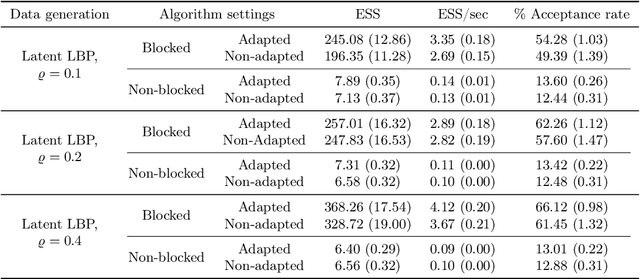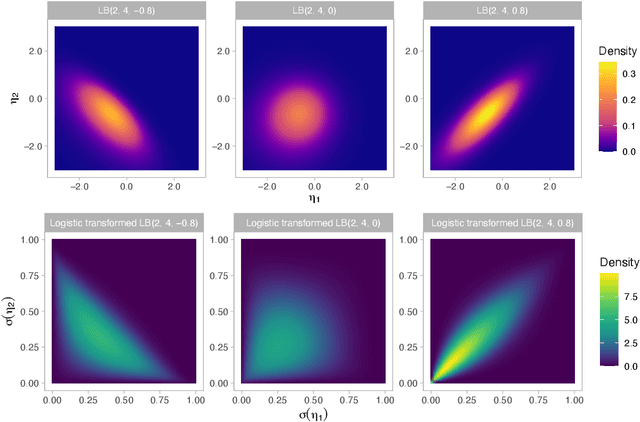Alessandro Zito
Logistic-beta processes for modeling dependent random probabilities with beta marginals
Feb 10, 2024



Abstract:The beta distribution serves as a canonical tool for modeling probabilities and is extensively used in statistics and machine learning, especially in the field of Bayesian nonparametrics. Despite its widespread use, there is limited work on flexible and computationally convenient stochastic process extensions for modeling dependent random probabilities. We propose a novel stochastic process called the logistic-beta process, whose logistic transformation yields a stochastic process with common beta marginals. Similar to the Gaussian process, the logistic-beta process can model dependence on both discrete and continuous domains, such as space or time, and has a highly flexible dependence structure through correlation kernels. Moreover, its normal variance-mean mixture representation leads to highly effective posterior inference algorithms. The flexibility and computational benefits of logistic-beta processes are demonstrated through nonparametric binary regression simulation studies. Furthermore, we apply the logistic-beta process in modeling dependent Dirichlet processes, and illustrate its application and benefits through Bayesian density regression problems in a toxicology study.
Pareto optimal proxy metrics
Jul 03, 2023Abstract:North star metrics and online experimentation play a central role in how technology companies improve their products. In many practical settings, however, evaluating experiments based on the north star metric directly can be difficult. The two most significant issues are 1) low sensitivity of the north star metric and 2) differences between the short-term and long-term impact on the north star metric. A common solution is to rely on proxy metrics rather than the north star in experiment evaluation and launch decisions. Existing literature on proxy metrics concentrates mainly on the estimation of the long-term impact from short-term experimental data. In this paper, instead, we focus on the trade-off between the estimation of the long-term impact and the sensitivity in the short term. In particular, we propose the Pareto optimal proxy metrics method, which simultaneously optimizes prediction accuracy and sensitivity. In addition, we give an efficient multi-objective optimization algorithm that outperforms standard methods. We applied our methodology to experiments from a large industrial recommendation system, and found proxy metrics that are eight times more sensitive than the north star and consistently moved in the same direction, increasing the velocity and the quality of the decisions to launch new features.
 Add to Chrome
Add to Chrome Add to Firefox
Add to Firefox Add to Edge
Add to Edge